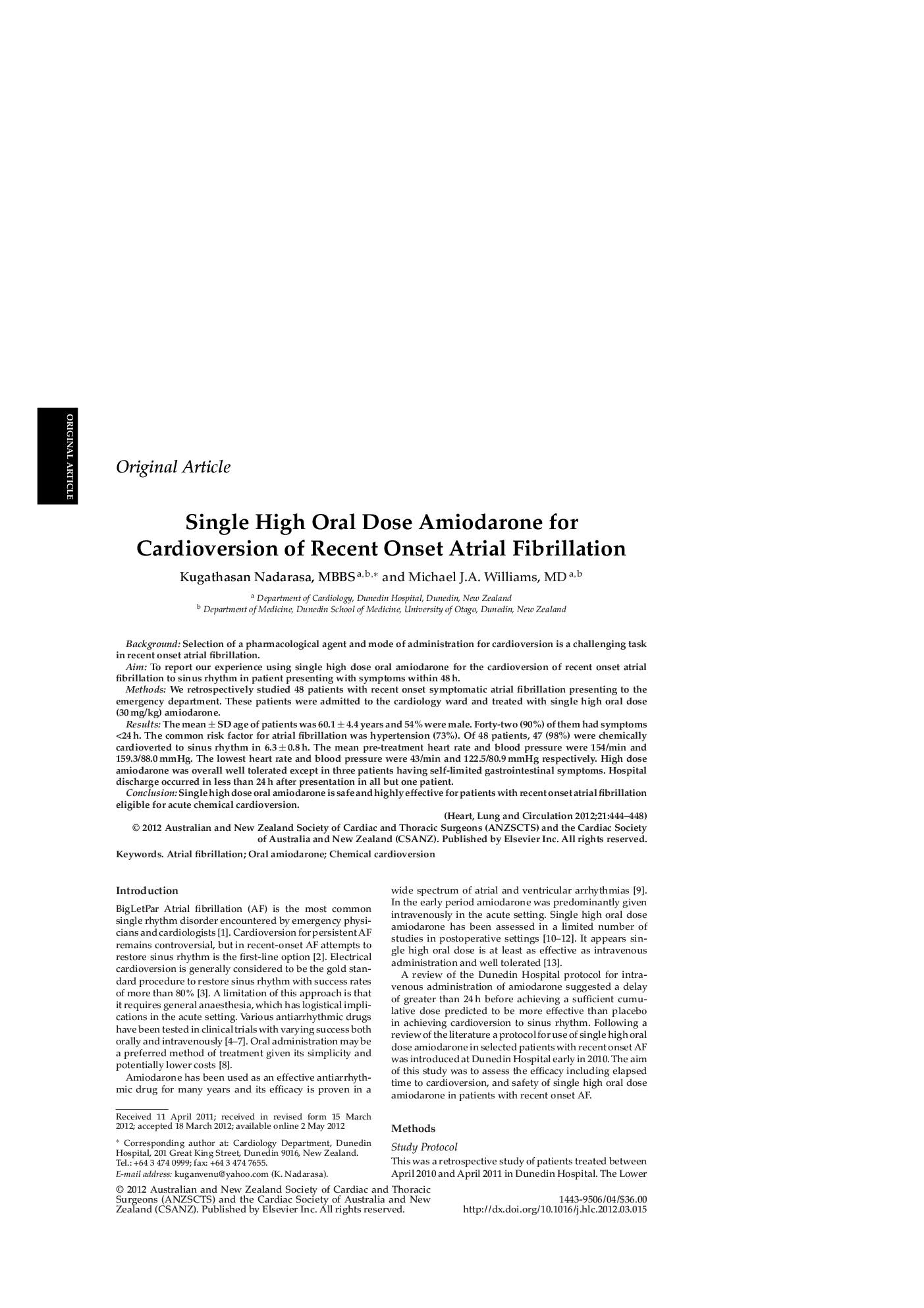| Article ID | Journal | Published Year | Pages | File Type |
|---|---|---|---|---|
| 2919523 | Heart, Lung and Circulation | 2012 | 5 Pages |
BackgroundSelection of a pharmacological agent and mode of administration for cardioversion is a challenging task in recent onset atrial fibrillation.AimTo report our experience using single high dose oral amiodarone for the cardioversion of recent onset atrial fibrillation to sinus rhythm in patient presenting with symptoms within 48 h.MethodsWe retrospectively studied 48 patients with recent onset symptomatic atrial fibrillation presenting to the emergency department. These patients were admitted to the cardiology ward and treated with single high oral dose (30 mg/kg) amiodarone.ResultsThe mean ± SD age of patients was 60.1 ± 4.4 years and 54% were male. Forty-two (90%) of them had symptoms <24 h. The common risk factor for atrial fibrillation was hypertension (73%). Of 48 patients, 47 (98%) were chemically cardioverted to sinus rhythm in 6.3 ± 0.8 h. The mean pre-treatment heart rate and blood pressure were 154/min and 159.3/88.0 mmHg. The lowest heart rate and blood pressure were 43/min and 122.5/80.9 mmHg respectively. High dose amiodarone was overall well tolerated except in three patients having self-limited gastrointestinal symptoms. Hospital discharge occurred in less than 24 h after presentation in all but one patient.ConclusionSingle high dose oral amiodarone is safe and highly effective for patients with recent onset atrial fibrillation eligible for acute chemical cardioversion.
